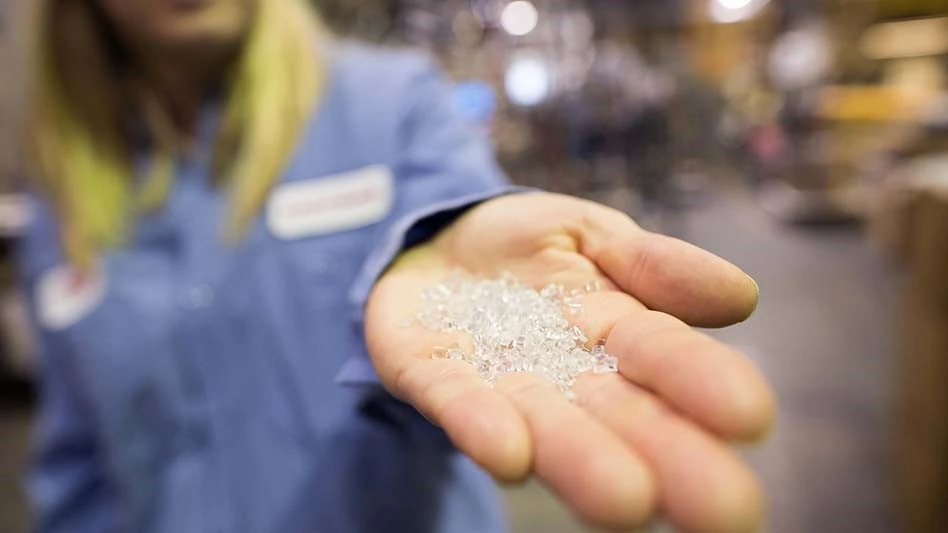
Photo courtesy Eastman
Germany-based Interzero and Eastman, based in Kingsport, Tennessee, have announced a long-term supply agreement for Eastman's previously announced molecular recycling facility in Normandy, France. Interzero will provide up to 20,000 metric tons of hard-to-recycle polyethylene terephthalate (PET) household packaging material annually.
According to a news release from Eastman, the company says its planned molecular recycling facility in France will become the world's largest material-to-material molecular recycling plant. Once completed, the facility will recycle about 160,000 metric tons of hard-to-recycle polyester material annually. The project is expected to be operational in 2025.
"Joining forces by combining the leading know-how of Eastman and Interzero is the next step in closing the loop with our partners and a step closer toward a world without waste," says Jacco de Haas, chief commercial officer at Interzero Plastics Recycling. "The world is facing a plastic waste crisis with far too little plastic waste being recycled, either from lack of collection or because it simply cannot be recycled by traditional methods. Eastman's innovative process and this agreement bring a solution to this."
Eastman says chemical recycling is a necessary complement to mechanical recycling to keep more raw materials in the loop. Both companies are committed to creating material circularity. The facility in France will process colored and opaque PET that can't be recycled mechanically to create clear and transparent rPET upon completion.
"Interzero and Eastman are committed to reducing plastic waste and creating circularity through collaboration and innovation," says Brad Lich, Eastman executive vice president and chief commercial officer. "This agreement marks an important milestone toward Eastman's investment in France. We are happy to build a strong collaboration in Europe with Interzero to provide a portion of the feedstock needed to successfully operate our facility. The collaboration reinforces the complementary nature of mechanical and molecular recycling and the importance of working together to create true circularity."
Eastman says its polyester renewal technology provides circularity for hard-to-recycle plastic that remains in the linear economy today. This material is typically incinerated because it either cannot be mechanically recycled or must be downcycled using existing technology. Eastman's chemical recycling technology allows this hard-to-recycle material to be broken down into its molecular building blocks and then reassembled to become first-quality material without any compromise in performance.
The company says its polyester renewal technology enables the potentially infinite value of materials by keeping them in production, life cycle after life cycle. With the technology's inherent efficiencies and the renewable energy sources available in France, materials can be produced with significantly less greenhouse gas emissions than traditional methods.
Get curated news on YOUR industry.
Enter your email to receive our newsletters.
Latest from Recycling Today
- Unifi launches Repreve with Ciclo technology
- Fenix Parts acquires Assured Auto Parts
- PTR appoints new VP of independent hauler sales
- Updated: Grede to close Alabama foundry
- Leadpoint VP of recycling retires
- Study looks at potential impact of chemical recycling on global plastic pollution
- Foreign Pollution Fee Act addresses unfair trade practices of nonmarket economies
- GFL opens new MRF in Edmonton, Alberta





